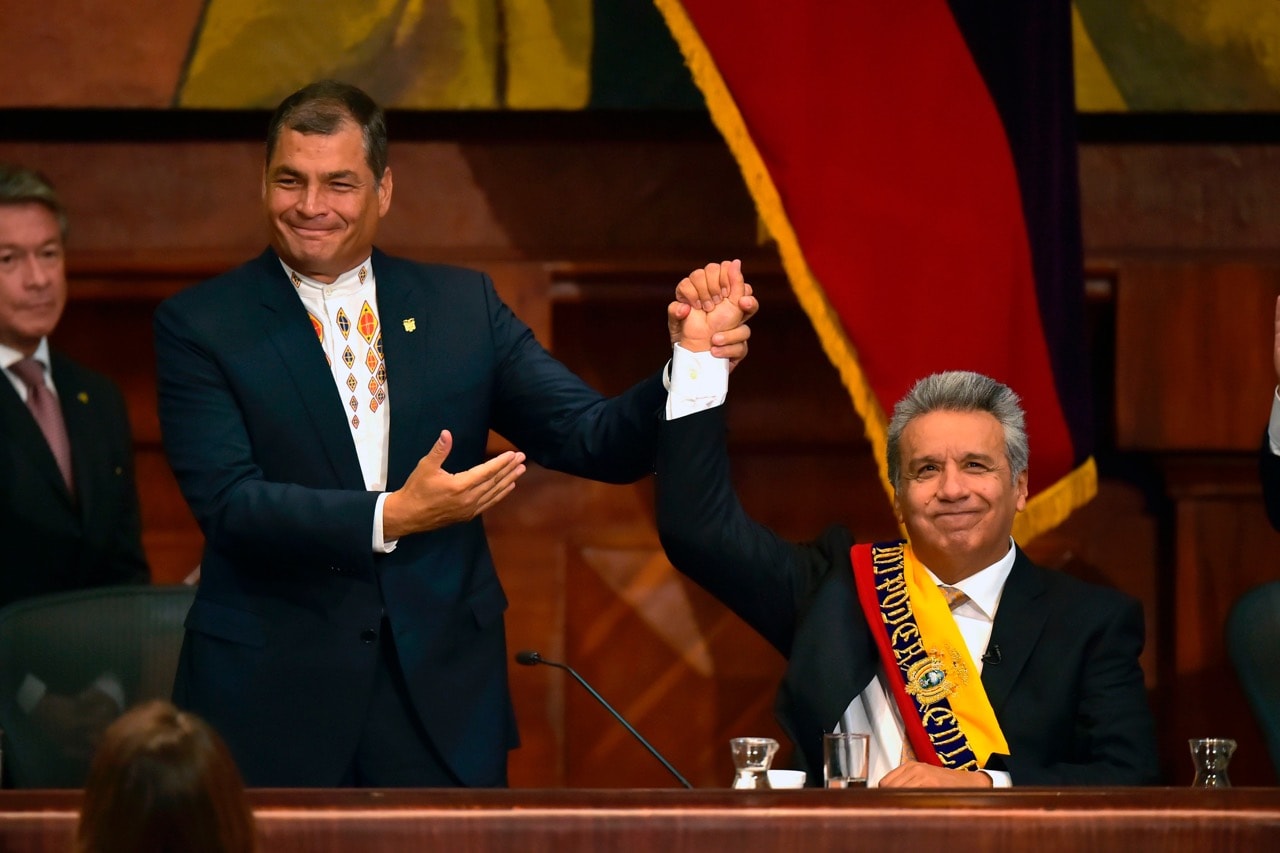The administration of President Lenín Moreno has dramatically diverged from that of his predecessor, Rafael Correa, who was severely critical of the Ecuadoran press and passed one of the most restrictive media laws in the region.
This statement was originally published on cpj.org on 12 July 2018.
On March 7, 2018, Carlos Ochoa, the former head of the Supercom, Ecuador’s feared media regulator, left his office in disgrace, facing an investigation into his tenure as head of the state-run TV outlet GamaTV. The dismissal of Ochoa, once one of the most powerful figures looming over Ecuador’s journalists, was a clear sign of a stunning change in the Ecuadoran media environment brought about by the country’s new president, Lenín Moreno.
The April 2017 election of Moreno, who served as former President Rafael Correa’s vice president from 2007-13, was expected to be a passing of the torch. Most Ecuadorans assumed Moreno would serve as Correa’s proxy, perhaps until the ex-president returned to power.
But Moreno evidently had no intention of keeping Correa’s seat warm for him. Since Correa left office in May 2017, numerous reporters and editors have described to CPJ a honeymoon between Moreno’s government and the news media. The Moreno administration, they said, has sidelined the Supercom; sought to improve relations with the news media; encouraged newspapers, websites, and radio and TV stations to carry out vigorous investigative journalism; and pledged to reform the country’s Communications Law, among the region’s most repressive pieces of media legislation.
Yet journalists remain wary. During a CPJ mission in March, journalists said that Correa’s policies created both editorial and financial havoc for independent news organizations. Until Moreno makes good on his pledge to strip the Communications Law of its most repressive articles and to dissolve the Supercom once and for all, Ecuadoran journalists will continue to work in fear.
A State of Repression
When economist Rafael Correa won Ecuador’s 2007 presidential election, he became part of a leftist wave sweeping across the continent. From Brazil’s Luiz Inácio Lula da Silva to Bolivia’s Evo Morales, the so-called “pink tide” ushered in more than a decade of left-wing economic and social policies throughout Latin America. This generation of leaders, including Argentina’s Cristina Fernández de Kirchner and Néstor Kirchner and Venezuela’s Hugo Chávez, banded together to form a regional counterweight to what they viewed as damaging interference by the United States and corporate interests in their countries.
Emboldened by this alliance, Correa and Chávez led a campaign against regional institutions like the Organization of American States (OAS), which they believed were dominated by Washington and sought to advance U.S. interests. In late 2011, Correa launched a broadside against Colombian lawyer Catalina Botero, then the OAS special rapporteur for freedom of expression, who had criticized Correa and some other leftist leaders for their repressive media policies. In early 2012, the bloc escalated its crusade against the special rapporteur, as a working group led by Ecuador and Venezuela proposed a set of restrictions limiting the office’s ability to issue press releases or accept external funding. Though the group ultimately failed, Correa’s ambitions at the international level were clear.
Domestically, the notoriously thin-skinned president did his best to silence critics that might look too closely at allegations of corruption propping up his administration. In 2008, Correa oversaw a successful constitutional referendum that consolidated executive power and introduced reforms regulating communication. Five years later, following Correa’s re-election in February 2013, Ecuador’s National Assembly approved the Organic Communications Law, codifying his anti-press tendencies into law. The next year, the legislature passed a bill that defined communication as a public service, allowing the government to regulate it like electricity or water and to determine what constitutes issues of public interest.



